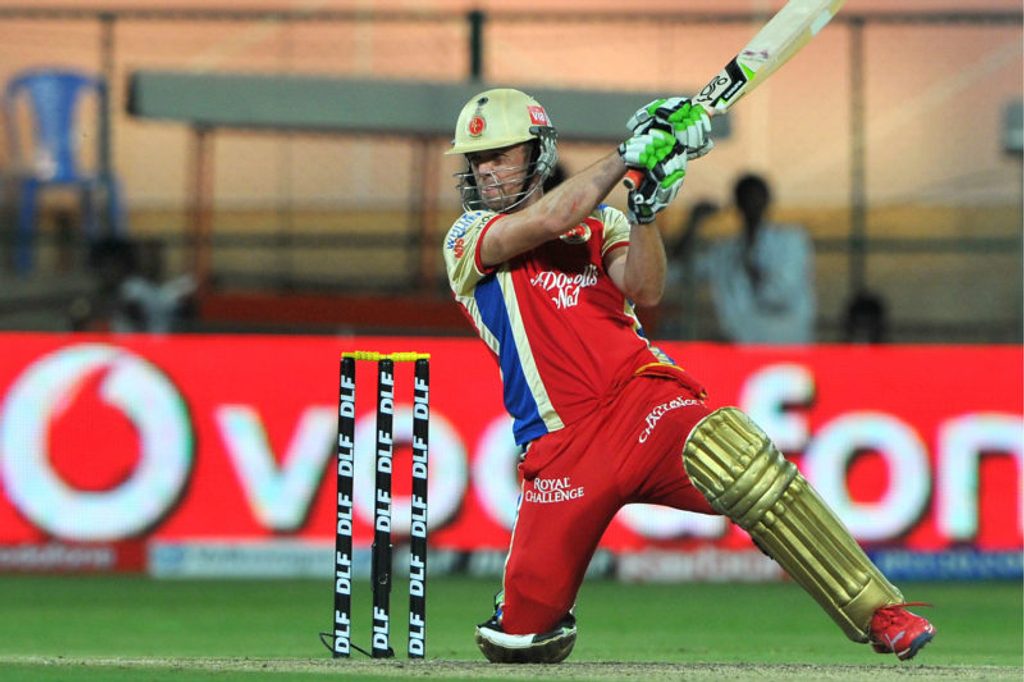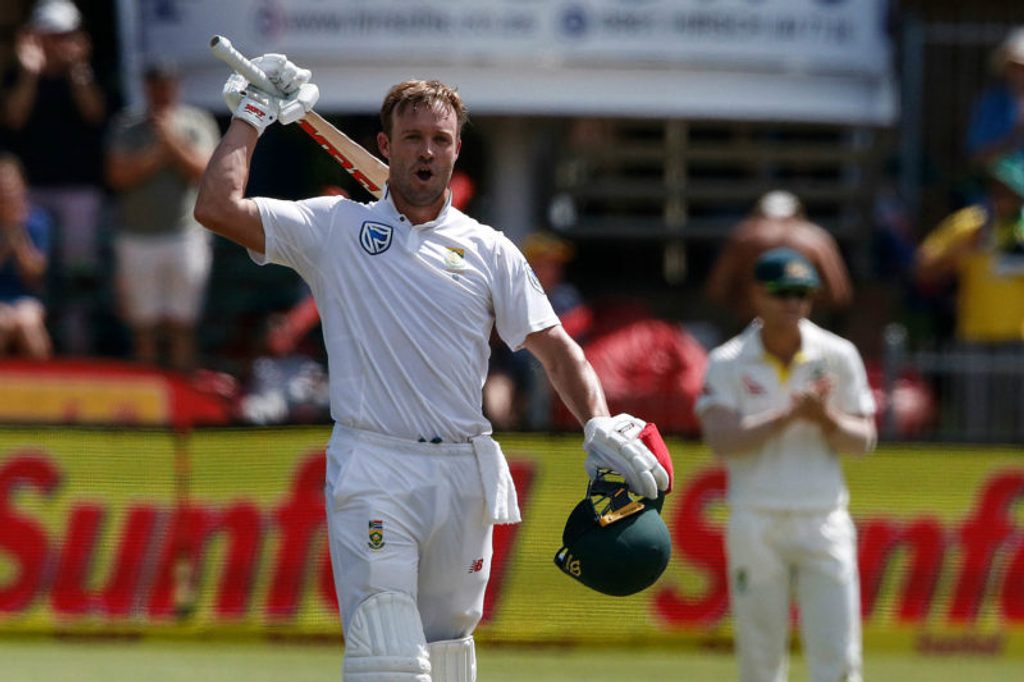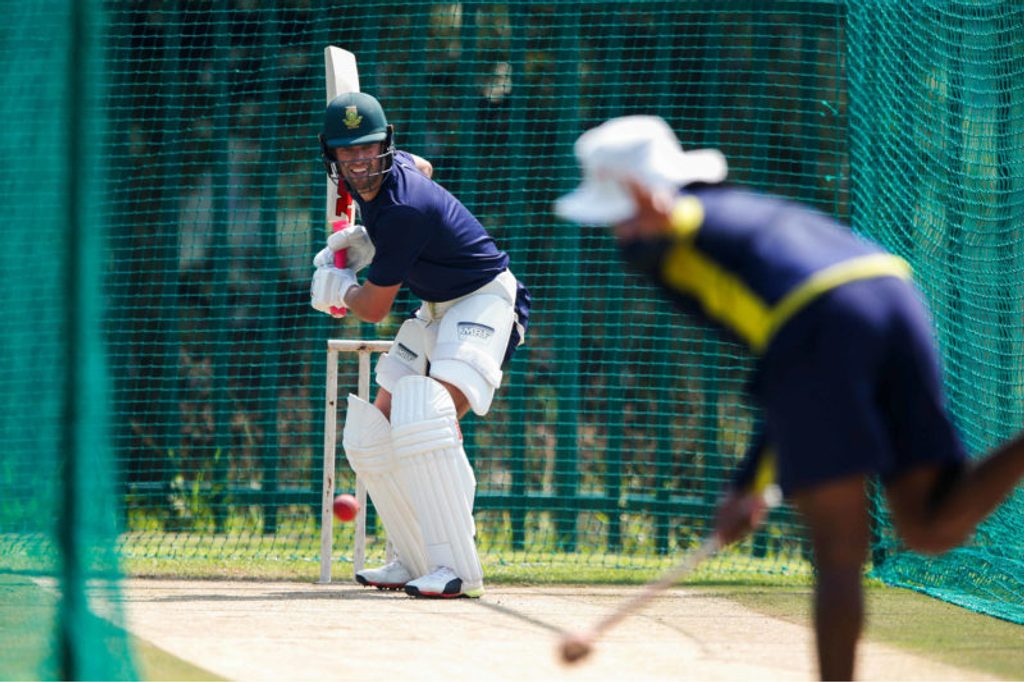
What does it take to become AB de Villiers? Is there a method to the madness? Is it instinct? Is it preparation? Or is he just that good?
The word ‘genius’ is often spoken in the same breath as ‘de Villiers’ and not for nothing. From scoring 33 in 220 deliveries to save a Test match for his country on the final day against a fearsome Australian bowling attack, to making the quickest century in ODI history off just 31 deliveries, the guy can do it all.
His latest pyrotechnics involved a scintillating 39-ball 90 in the IPL for his franchise Royal Challengers Bangalore, while chasing Delhi Daredevils’ formidable 175-5.
The incredible hand-eye coordination, the 360-degree play, the ability to switch gears depending on the situation – the South African said it all stems from staying in the moment and keeping it basic.
 AB de Villiers smashed a scintillating 39-ball 90 against Delhi
AB de Villiers smashed a scintillating 39-ball 90 against Delhi
“I just play the moment,” de Villiers explained to a group of reporters on the sidelines of the IPL. “I try not to think ahead or about what happened.
“I see a weakness in the bowler and think, ‘Can I maybe expose him in some way?’ Or if I can’t, I’ll try and maybe stick to the basics, wait for him to make a mistake and then jump on it.
“I don’t overthink things. I just keep it very simple. I watch the ball, see it coming out of the bowler’s hand clearly, and wait for a bit of weakness in the moment. I do not try and accelerate unnecessarily or go the other way unnecessarily. I just try and play what’s in front of me.”
 “I just play the moment”
“I just play the moment”
This was on display during de Villiers’ innings against Delhi on Saturday April 21. Coming in to bat with Bangalore two wickets down for not much, he made his intentions clear. He went after Delhi’s best bowler at the time in Shahbaz Nadeem, who was extracting plenty of turn from the M Chinnaswamy surface. He struck the left-arm spinner for five fours in eight deliveries immediately after walking in to wrest the momentum.
“I felt he (Nadeem) could get me out and my way to counter that is to attack, to put pressure on him, and then he makes mistakes instead of me,” explained de Villiers. “It’s a game of chess in a way.
“I came in there and saw it turn a bit and I thought straightaway, ‘There are two slips here, if I block, I will get out’. My way of transferring the pressure is to show that I am not there to block it, but I am there to score runs … It’s that simple.”
 He scored four fifties and a ton in South Africa’s 3-1 Test win against Australia
He scored four fifties and a ton in South Africa’s 3-1 Test win against Australia
De Villiers came into the 11th edition of the IPL after a successful four-match Test series against Australia at home. He scored four half-centuries and a century in South Africa’s 3-1 win. He, however, stressed on the futility of resting on laurels and insisted success or failure should not affect the thought process.
“The funny thing with people who play sport is that they always compare their value as a person in results, which is a wrong thing to do,” he said. “When you do well, of course, you feel good about yourself, but there is a fine line between success and failure and for sportspeople, it is always important to remember that. I have learned how to deal with success and failure over the years, and not to let it spike up and down too much.
“I am not playing against Australia and I am not thinking about my hundred. It is a nice memory. It is done. It is important to think about what is going to happen in the next game, how I am going to win the game for my team.”
 “It is all about mastering the basics and the rest falls into place”
“It is all about mastering the basics and the rest falls into place”
For someone known for his unorthodox ways, de Villiers thinks it is important to get the basics right. This, he said, gets him quizzical looks from youngsters.
“Most of my advice normally is don’t overthink it, don’t complicate things, keep it simple,” he said. “I have spoken to a lot of youngsters, a number of times and they look at me as If I am crazy because I tell them to keep it simple, keep your head still, watch the ball, don’t think too much. And they are like, ‘No, that can’t be it’. But, it is what it is all about, it is mastering the basics and then the rest falls into place.”








